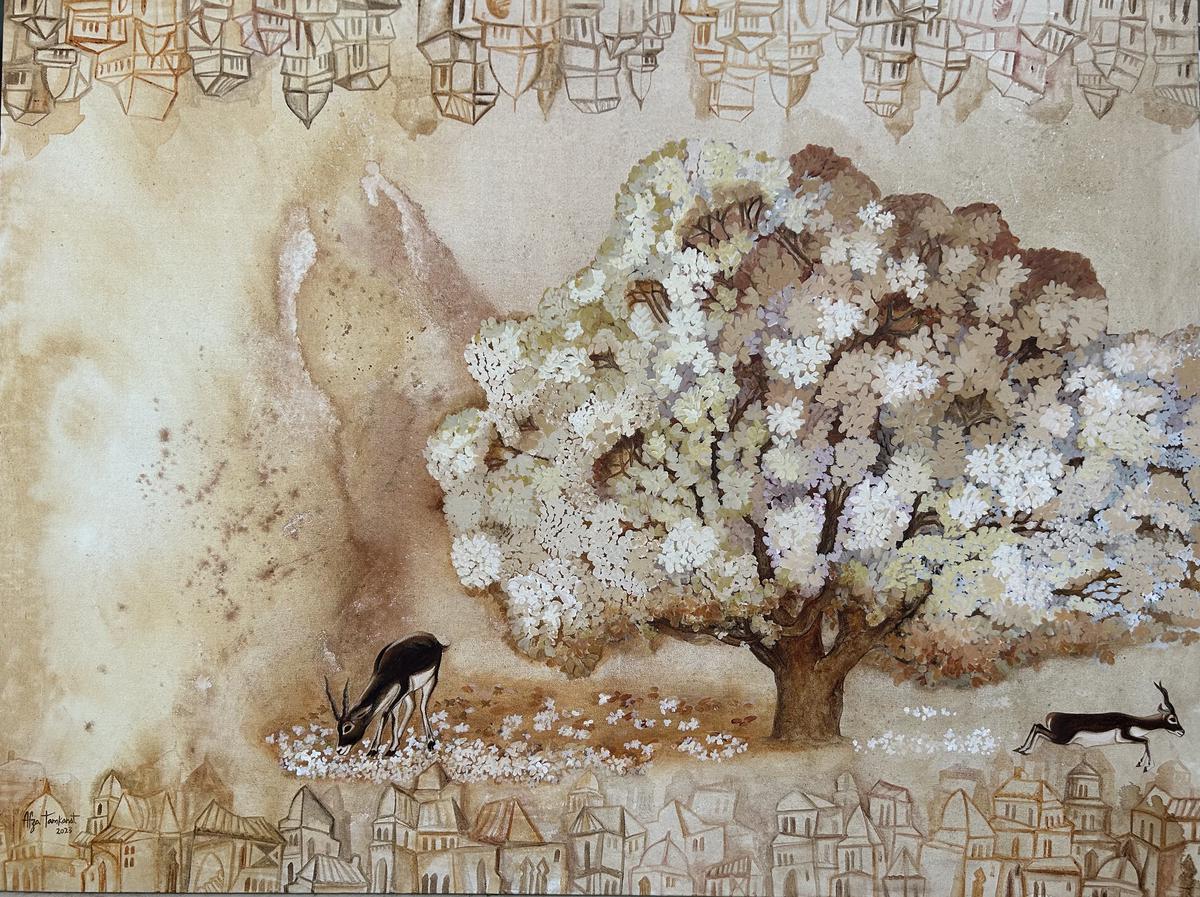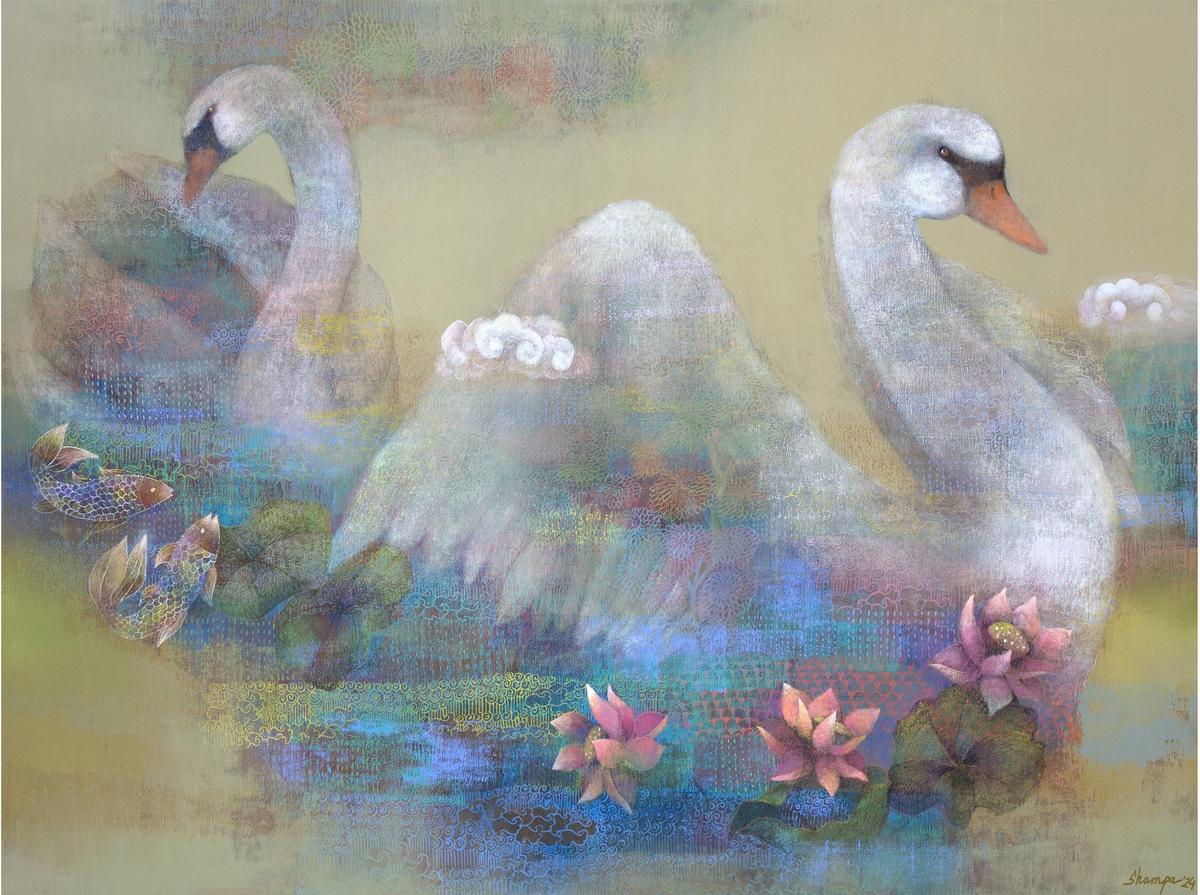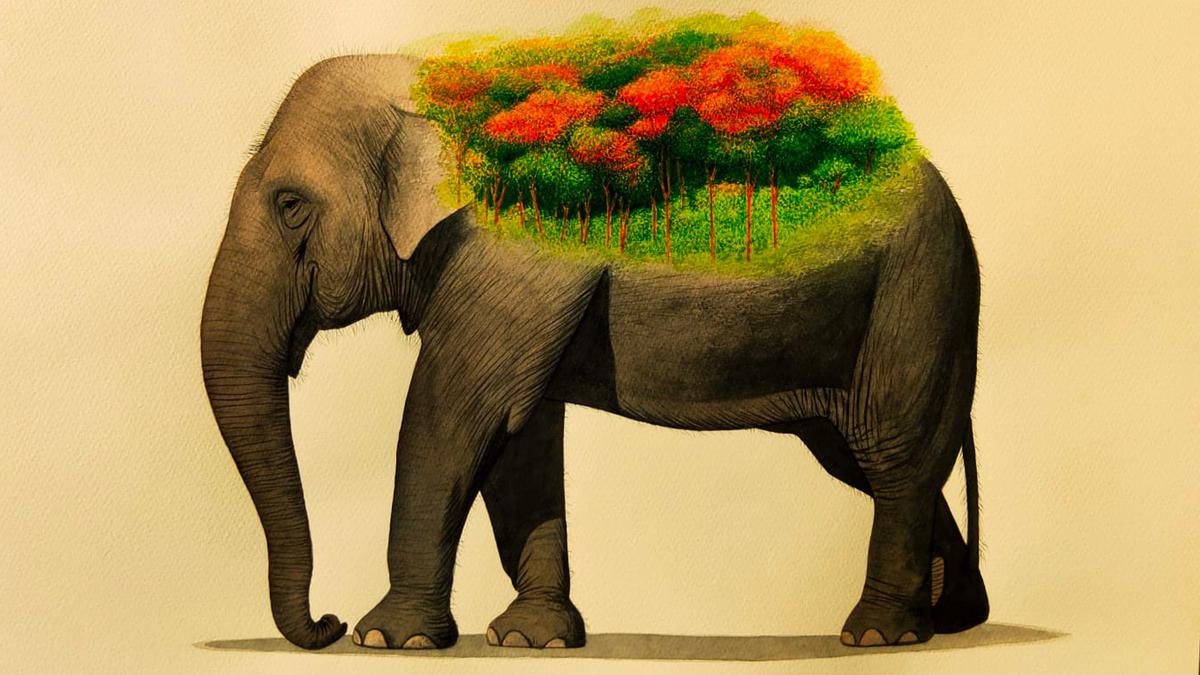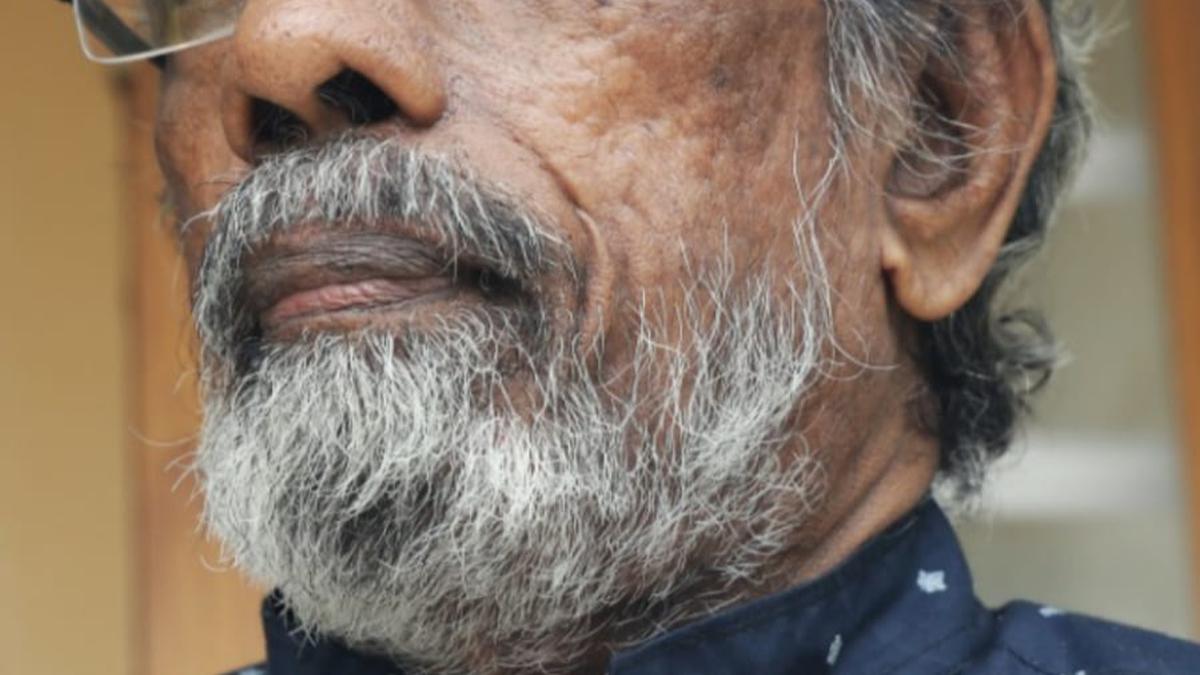A painting from the elephant series by Dushyant Patel
| Photo Credit: Special Arrangement
“My work is not born in studios but from my frequent road journeys across India,” says New Delhi-based artist Shampa Sircar Das. In their depiction of Nature, her surreal paintings borrow from her observations of flora, fauna, folklore and culture from the villages of Ladakh, Spiti Valley, the Northeastern States, and temples of South and East India. Like the swans and lotuses in her Hansa series of paintings, she hopes that people who dwell in urban pockets will find peace despite the murky environment. Shampa is among the artists to participate in the Whispers of Nature exhibition at Kalakriti Art Gallery, Hyderabad.
Curated by Ruchi Sharma, Whispers of Nature also features artworks by Alpesh Dave, Afza Tamkanat, Avijit Dutta, Chetana Vagh, Dushyant Patel, Manisha Agarwal and Vijay Sharma. The paintings present vignettes of Nature through diverse artistic expressions, capturing seasonal transitions and human interaction with the environment.

Musings on Nature by Afza Tamkanath
| Photo Credit:
Special Arrangement
Afza Tamkanath chooses a predominantly brown palette to document Nature and cityscapes she has observed over the years, from growing up in Hyderabad and later moving to the Middle East, Bali and Sydney, where she now resides.

One of her paintings offers a window view of flora and fauna. “It conveys the idea that embracing Nature opens doors to positivity in one’s life, fostering a sense of tranquillity,” she says. She began the window series after moving to Sydney. The mix of cityscapes is her way of acknowledging diverse cultures and architectural styles. “The juxtaposition of old and new elements reflects the rich tapestry of history and modernity, each contributing to the unique character of the urban landscape.”
Alpesh Dave explores mankind’s need to be in the lap of Nature to rejuvenate by searching for tranquil blue waters, while Avijit Dutta draws our attention to songbirds. Chetana Vagh’s floral-themed series presents a blooming pond, spring in Delhi and a field of flowers.
One of Manisha Agarwal’s artworks is a collection of 21 images of plant and animal life in a science book manner, outlining the complexities of the structures. She uses tea colour, embroidery, cloth, rice paper, beads and seeds for the textures.
Talking of textures, Shampa Sircar draws attention to the sand-like texture in some of her paintings, which she owes to the fine grainy sand in Ladakh. In one of her Mayura series on peacocks, she juxtaposes them with elephants and a banana plantation from her memories of travelling to South India.

A painting from the Hansa series by Shampa Sircar Das
| Photo Credit:
Special Arrangement
Meanwhile, Dushyant Patel’s series on elephants uses the gentle giant as a metaphor to comment on environmental issues. “We take our wildlife for granted and treat them as commodities,” says the artist. He began working on the elephant series after coming across disturbing news reports. “A 15-year-old pregnant wild elephant in Palakkad, Kerala, succumbed after eating a pineapple bomb. This raises a question about humanity. I also learnt about a wild elephant found dead inside an estate in Kambibane near Mysuru. In 2018, in Jharkhand, a herd of wild elephants destroyed crops and around 50 houses in a village.” These reports made him think of human encroachment and territorial fights of animals, which he highlights through art.

Vijay Sharma’s miniature paintings-inspired series serves as a nostalgic window to the past by depicting the lifestyles of the aristocrats, flora and fauna through the lens of a contemporary urban dweller.
(Whispers of Nature is on view at Kalakriti Art Gallery, Banjara Hills, Hyderabad, from April 5 to May 1)




.jpg)


